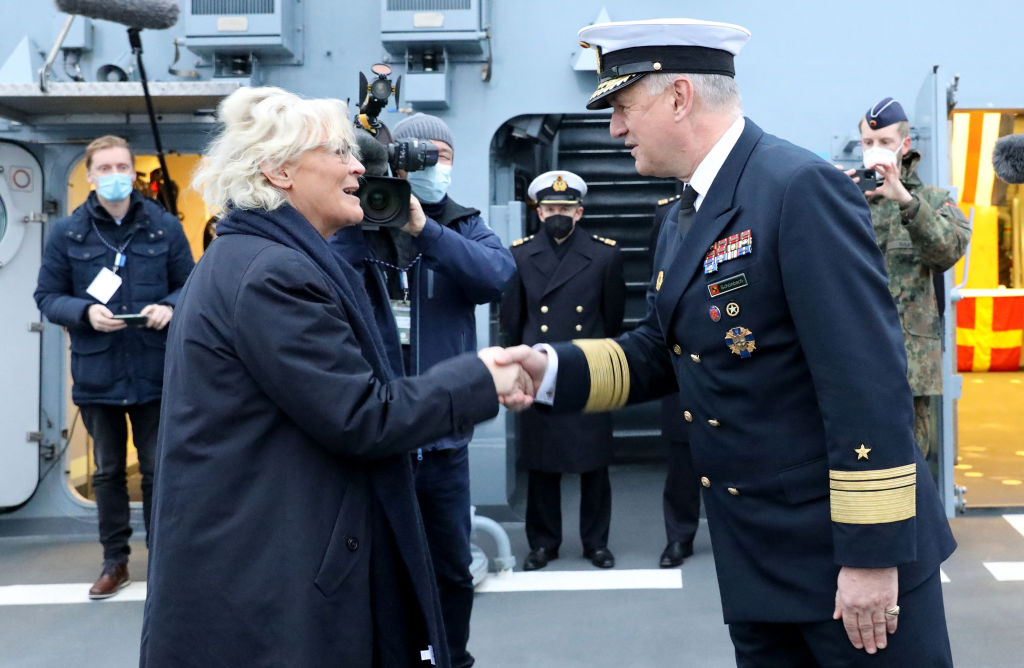German navy chief who said NATO should give Putin 'the respect he demands' resigns


A free daily email with the biggest news stories of the day – and the best features from TheWeek.com
You are now subscribed
Your newsletter sign-up was successful
German Navy Vice-admiral Kay-Achim Schönbach announced his resignation Saturday after his comments about the ongoing crisis at the Ukrainian border provoked outrage, The Guardian reported.
At a think-tank discussion in India on Friday, Schönbach said all Russian President Vladimir Putin really wants is "respect," and that "giving him respect is low cost, even no cost. It is easy to give him the respect he demands, and probably deserves."
Schönbach, who has led Germany's navy since March 2020, also said the Crimean peninsula, which Russia annexed from Ukraine in 2014, "is gone" and will "never come back" to Ukraine.
The Week
Escape your echo chamber. Get the facts behind the news, plus analysis from multiple perspectives.

Sign up for The Week's Free Newsletters
From our morning news briefing to a weekly Good News Newsletter, get the best of The Week delivered directly to your inbox.
From our morning news briefing to a weekly Good News Newsletter, get the best of The Week delivered directly to your inbox.
Ukraine's foreign ministry said Schönbach's remarks were "categorically unacceptable."
According to BBC, Ukraine has also criticized Germany for its refusal to provide the former Soviet republic with weapons and other forms of "lethal aid."
Additionally, Schönbach suggested that both India and Germany could benefit from cultivating closer ties with Russia as a way to counter rising Chinese influence and preserve Christian civilization against the officially atheist Chinese Communist Party.
"India, Germany — we need Russia against China," he said to Sujan R. Chinoy, a former Indian ambassador. "Probably not from your perspective, but from my perspective. I'm a very radical Roman Catholic. I believe in God, and I believe in Christianity, and then [Russia is] a Christian country, even if Putin is an atheist, but it doesn't matter."
A free daily email with the biggest news stories of the day – and the best features from TheWeek.com
Putin is, at least nominally, a Russian Orthodox Christian, but has expressed discomfort with speaking publicly about his faith.
Grayson Quay was the weekend editor at TheWeek.com. His writing has also been published in National Review, the Pittsburgh Post-Gazette, Modern Age, The American Conservative, The Spectator World, and other outlets. Grayson earned his M.A. from Georgetown University in 2019.
